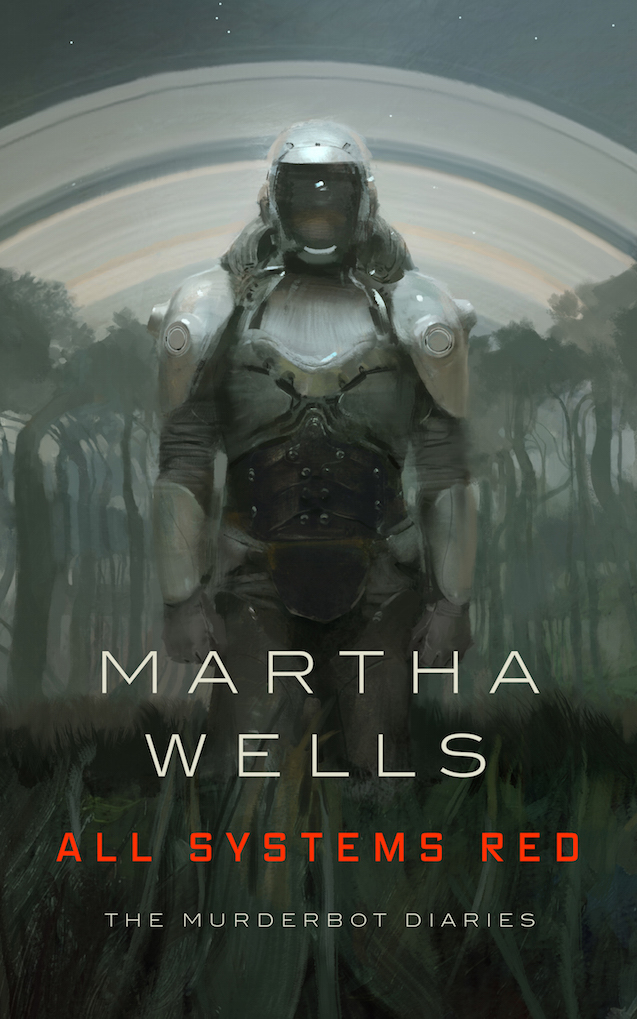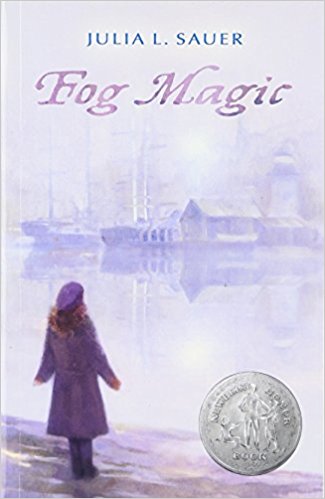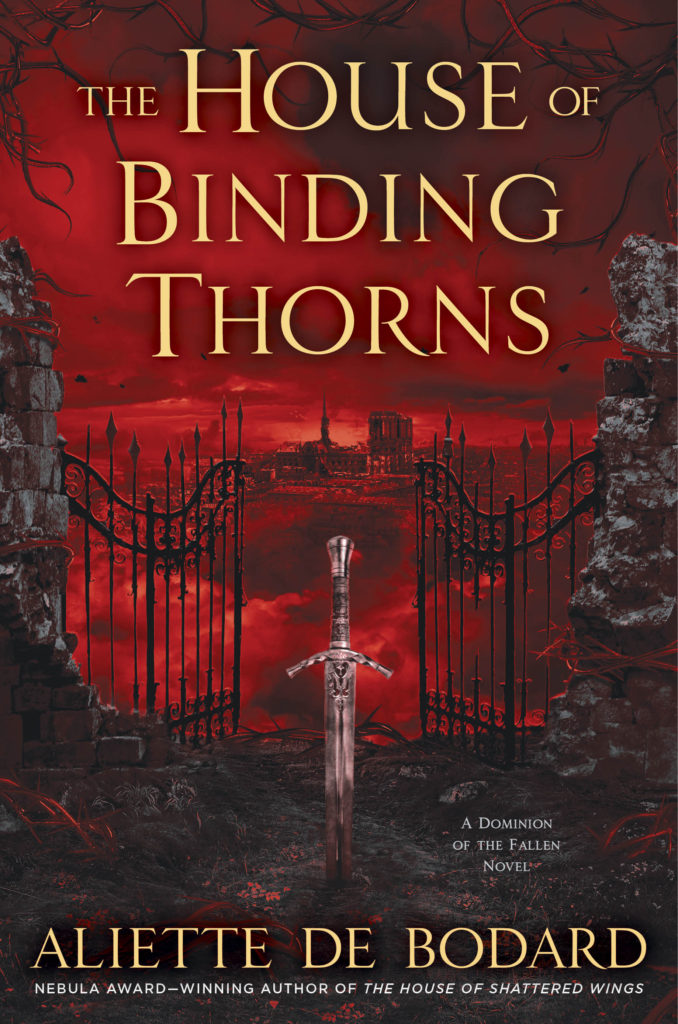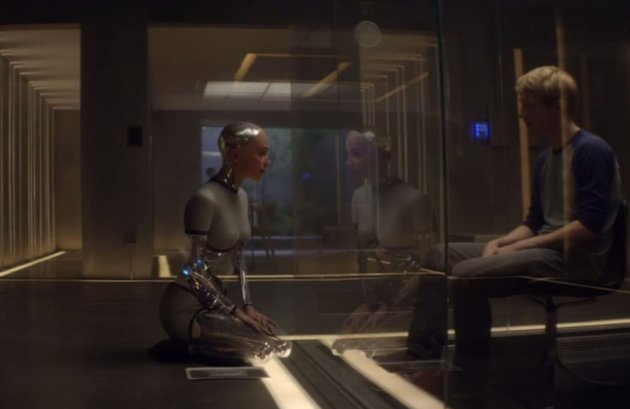Book Review: All Systems Red: The Murderbot Diaries by Martha Wells

A SecUnit assigned to the exploratory group PreservationAux has a problem. Two in fact. As an android, it’s supposed to serve the small exploratory mission to which it has been assigned. The SecUnit’s entire function is to support the exploratory mission’s investigation of a local planetary environment that it has placed a bid on to look at. Androids like SecUnit are a safety precaution from the Company because, well, alien planets can be rather hostile. And of course, they are handy recording devices, too, for the Company that is. A mandatory helper and a spy for anyone looking to explore the wild frontier in space. Given that planets are not monolithic single-biome worlds, having multiple teams from competing groups spread out across a newly found world is a pretty regular thing. Who knows what you will find over in the next valley, down the river a bit, from another team. One team can’t find everything on a planet. So when a neighboring team to SecUnit’s goes dark, that’s a bad sign for its team, a major concern. What disaster befell them? Environmental? Natural? Something else? Given the proximity, is it a threat to PreservationAux, and to SecUnit itself?
Torture Cinema Poll: Mayday!

Well, everyone, Babylon AD was pretty awful. More awful than some of us remembered. So good job on your April pick! This time around, there are no redeeming features to any of these movies. We swear. None. So pick away and be confident that whatever you do choose, it will be torturous for our participants!!
Retro Childhood Review: Fog Magic

“It’s the things you were born to that give you satisfaction in this world, Greta. Leastwise, that’s what I think. And maybe the fog’s one of them. Not happiness, mind! Satisfaction isn’t always happiness by a long sight; then again, it isn’t sorrow either. But the rocks and the spruces and the fogs or your own land are things that nourish you. You can always have them, no matter what else you find or what else you lose.” Portal fantasy is a popular genre for middle children’s fiction, as evidenced by the fact that 3 out of my 4 Retro Childhood Reviews are about children finding their way to new worlds. In The Neverending Story, Bastian is escaping a grief-filled reality; in Firebrat, Molly is learning to appreciate her Grandmother; the reasons for traveling through portals are as varied as the stories themselves. But portal fantasy, at its core, allows a child reader to travel to new worlds along with the protagonists. Fog Magic, by Julia L. Sauer, a Newberry Honor Book, is an absolutely charming addition to the genre. Though this is not a book that captures my heart to the level of some of the others on my shelves, it is nonetheless one that I turn to from time to time, to escape to the simplicity of an earlier age.
Book Review: The House of Binding Thorns by Aliette de Bodard

In the aftermath of the fall of Morningstar of House Silverspires, just as it was seeking to become ascendant over the other Fallen Angel led Houses, the focus turns to House Hawthorn, part architect of Morningstar’s fall. Lord Asmodeus knows that each and every position and rank is under threat, and his attempts to shore up the power of his House, and himself, will lead him to send an embassy to the Dragon Kingdom underneath the surface of the Seine. In the meantime, even as Asmodeus schemes, an alchemist and an immortal try and survive schemes within Hawthorn, the Dragon Kingdom, and across Paris itself. Two broken and desperate protagonists in a world that is equally broken, but perhaps still salvageable. And perhaps the protagonists are salvageable themselves. House of Binding Thorns is the second full novel by Aliette de Bodard set in her post-apocalyptic early 20th century Paris.
Book Review: Wothwood by Natania Barron

A mysterious ruin in a dangerous wood. A fateful expedition. A strained relationship, ancient secrets & tensions. Wothwood by Natania Barron, part of the Broken Cities series of stories, brings a lean and mean novella sensibility to a secondary world quest fantasy with a lot of character and worldbuilding on offer. The story of Wothwood centers, really, around two characters, and their old encounter, which comes back in unexpected guise to challenge them, those around them, and the entirely of the land around. Braig Vann was seemingly destined to be the heir to Clan Bannercliffe, the next leader, Moramer of the Clan. Glannon Bel, however, his cousin, wrests the position away from him, leaving him to die at the edge of the Wothwood. Saved from certain death, Braig’s new life with the wandering, disenfranchised Tyckners is distant from his cousin’s eye for years, until an expedition from a nearby Empire comes to investigate the mysterious Wothwood for themselves. Caught up in that expedition, Braig’s return to Bannercliffe territory, and facing the Moramer Glannon Bel, is the driving force for old secrets, both between the two of them, and what truly lurks in the Wothwood.
The Intersection: AI and Creator-bias

Today’s post isn’t about science fiction exactly, but we’ll file it under “thoughts that inspire science fiction” and vice versa. Ask a professional scientist if observer bias exists, and they’ll say yes. Medical science alone has many examples of what happens when bias is ignored. It affects medical practice in dangerous ways. Until recently, drug testing was almost never conducted on women. The reasoning was that women have “hormone fluctuations,” and the male-dominated medical industry wanted a pure data-baseline. Society believes that male is default for human. So, the establishment assumed that whatever is safe for men is safe for women and never looked back. Of course, the failure in logic here is that if a drug’s effectiveness is adulterated enough by female hormone fluctuations that it alters the end data, how could they have missed that this also meant this interaction could change its efficacy on the patient? Or to put it another way: How could they possibly know whether or not the drugs were, in fact, safe for women if the drugs aren’t tested under conditions with shifting hormones — the very conditions under which the drug was being used? This isn’t the only example.[1] And medicine isn’t the only science to suffer because of unexamined bias. And here is where we begin our discussion of AI.

